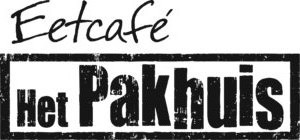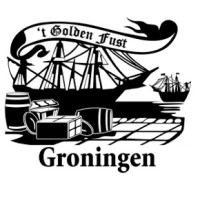


This year’s destination of ESR Fall will be Madrid! From the 20th to the 27th of November, a group of 25 bachelor and master students, 2 professors and 6 committee members will join together for a week to visit this amazing Spanish city and conduct research. The trip will consist of a combination of cultural activities, company visits with the aim of finalizing our research, and chances to experience the amazing nightlife and culture that the city has to offer.
European Study Research is an amazing experience for students. It’s an opportunity to bring something unique to your university experience, a chance to broaden and diversify your skill set, a way to improve your research skills and an amazing way to create memories and new friendships. All of this in the exciting city of Madrid!
Madrid is a city of joy and life. Madrid is known for its historical buildings, food markets, its renaissance and contemporary art museums, unique neighborhoods, and bustling nightlife. Furthermore, Madrid is the largest economic hub in Spain, and together with Barcelona the economic and financial heart of the country. This year, the research theme will be “Resilience of the Spanish Economy in the Digital Age”. You will be split up into teams of 5 students, each with a specific sub theme to focus the research on. More information about the sub themes can be found under the theme tab.
The ESR experience begins with an opening dinner, followed by 7 weeks of lectures, dinners and socials every Monday night. A variety of different topics, lecturers and points of view will be discussed each week. After we return, there will be another 2 weeks of lectures before the final dinner in order to put the finishing touches on our work.
The total cost of joining will be €200,-, which includes plane tickets, accommodation and transportation during our stay, as well as various other activities to take part in.
This ESR experience is one that is unique, and should not be missed! In order to take part in this amazing project, click on the register button! Applications open on the 7th of September and close on the 19th of September, 23:59!
The applications are open to bachelor students of the FEB with at least 45 ECTS and master students.
For any other questions about the trip, feel free to contact us at esrfall@ebfgroningen.nl.
Sunday 19th of September, 23:59
Monday 20th of September till Thursday 30th of September
Monday 4th of October
Every Monday at 17:00 from 11th of October till 15th of November
Wednesday 17th of November
Saturday 20th of November till Saturday 27th of November
Monday 29th of November and Monday 6th of December
Monday 13th of December
In the 7 weeks prior to the trip there will be a lecture (5-7pm), dinner (7-9pm) and a social (9pm onwards) every Monday which you will be expected to attend. In the lectures we will discuss how to conduct research, there will be presentations by the various subgroups and guest lectures about Spanish culture and conducting qualitative research. The dinners and socials are a great way to get to know everyone. Next to these activities you are expected to actually prepare your specific research together with your subgroup, which will mostly be done during the preparatory phase of the trip. In total ESR will cost you about 6-10 hours per week.
Since the beginning of the 21st century the world has been increasingly digitizing. The rise of the computing capacity in combination with big data has given Artificial Intelligence the opportunity to rapidly develop. The growth of this global digital economy has enabled fast communication and the availability of vast amounts of information. This digital transformation has resulted in a stimulation of innovation and an increase of productivity across a wide range of activities. This resulted in a wider availability of information and knowledge which caused in certain areas for an improvement of well-being. Despite all these benefits, digital advances are also facing contemporary challenges with relation to nature, the structure of markets, organisations and social interactions. To overcome these challenges the world has to focus on developing new skills, creating other kinds of employment, entering the market in new ways, competing on new levels and taking improved privacy and security measures.
The digital world will continue to evolve causing the constant adaptation to new challenges. Therefore, it is important for organisations to be able to easily anticipate and respond to the developments of the digital world. An important concept that applies here is resilience, which can be defined as the ability to anticipate, prepare for, respond to, and recover from a disturbance such as for example financial crises, epidemics and natural disasters. A current disturbance of the digital world which impacted all of us is the COVID-19 pandemic. This pandemic has had major consequences and continues to do so. How have Spanish organisations anticipated, prepared for, responded to and recovered from COVID-19? How did Spanish organisations experience this disturbance compared to previous disturbance in the digital age such as the financial crisis in 2008? Has the development of the digital transformation between these years made a difference? Research will be conducted on how the Spanish economy has developed in terms of resilience in the digital age. Besides looking at how the Spanish economy has reacted thus far, there will also be investigated on how the Spanish economy could improve its resilience in the years coming up.
In order to research our theme: ‘Resilience of the Spanish Economy in the Digital Age’, we will focus on five subthemes, hereby every subtheme will be linked to the main theme. As a participant you will be divided in one of these groups. During the lectures and the preparations, you will get the chance to acquire the necessary skills to conduct business research and to come up with a theoretical framework and conceptual model. Together with your subgroup you will discuss your findings during the lectures and get the chance to get feedback from either the committee or the professors. The final product will include advice from every group to the companies. All the companies we visit in Madrid will receive your report. The five sub themes we want to investigate are Foreign Direct Investment, Sustainability, Digital Business, Human Resource Management and Innovation & Entrepreneurship.
Foreign Direct Investment
When an investor establishes foreign business operations or acquires foreign business assets, including establishing ownership or controlling interest in a foreign company, Foreign Direct Investment (FDI) takes place. The expansion of an organization into an international market gives this organization numerous new opportunities and challenges. Also digital transformation raises challenges such as market entry and competition. These challenges influence the level of FDI in a country. During the financial crisis in 2008, net inflows of FDI decreased with 65 billion dollars and net outflows of FDI decreased with 60 billion dollars according to the World Bank. The level of net inflows and outflows of FDI increased immediately after the financial crisis. What does this suggest about the Spanish economy’s resilience? How has the level of FDI changed in the digital age as a result of other disturbance?
Sustainability
Companies have to find a balance between the immediate needs of today and the demands of tomorrow. Nowadays, there is an increasing demand from a wide range of stakeholder groups to adopt and implement responsible management. Sustainable development is the development that meets the needs of the present without compromising the ability of future generations to meet their own needs. Companies can contribute to a more sustainable environment by taking the planet and the people living on it into account. Decisions should be made based on long-term considerations. Digital transformation has game-changing potential for sustainability. Companies can use more data and digital technologies as leading-edge solutions to the challenges of environmental sustainability. However, is sustainability also important for a company when it is in a crisis? Do they have attention for sustainability while they are busy with surviving a disturbance such as the world-wide COVID-19 pandemic? What is the effect of the level of sustainability of the company on the resilience of the company?
Digital Business
Nowadays, people are spending more money online than ever, this has changed the focus of businesses to digital revenue sources and platforms. People are becoming more familiar with digital products and services as the digital economy grows. This encourages businesses to seek new competitive advantages in the digital world. Digital businesses use technologies to produce new value in their business models, consumer experiences, and internal capabilities that support their core operations. Madrid is ranked 14th (14/60) at the European Digital City Index. This index describes how well different cities across Europe support digital entrepreneurs. The development of digital business raises new advantages for companies as well as challenges such as new policy and regulatory issues. How has the rise of digital business changed the resilience of the Spanish economy? What else can Madrid do to be ranked 1st at the European Digital City Index?
Human Resource Management
Human resources can be seen as one of the most valuable resources of a company. Good employees are crucial to the success of a business. People have unique skills and knowledge that contribute to the success of an organization. Due to these unique and personal skills it is hard to write down what human resources entail, and therefore these resources can be described as part of the intangible assets of an organization. Additionally, the digital transformation raises challenges for skills and employment since information and knowledge has become more widely available. If companies want to retain their human resources, they should be aware that it is necessary to educate their employees in order to keep up with the digital transformation. How has human resource management developed in Spain during the digital age? Will human resources still be one of the most valuable resources of a Spanish company in the future? Have human skills been replaced by data analytics programs within Spanish companies? What was the effect of this on the company’s resilience?
Innovation & Entrepreneurship
In the highly competitive world that we live in, innovative ideas are what will separate you from the rest, therefore innovation is crucial when it comes to growth. Innovation and entrepreneurship are essential ingredients in building a successful commercial venture. The purpose of innovation is to continuously grow and renew an enterprise with new or improved products, more efficient processes or strengthened business models. Digital transformation results in a stimulation of innovation since more data is available and communication can go faster. Examples of innovation during the digital age are cloud computing, big data analytics, blockchain, artificial intelligence and robotics cryptocurrencies. What was the effect of this stimulation of innovation on the company’s resilience during the digital age? Has this increase in innovation also led to negative consequences since companies have also faced challenges regarding privacy and security of data of innovative ideas?
Click here to find out more about the ESR Fall Committee!

